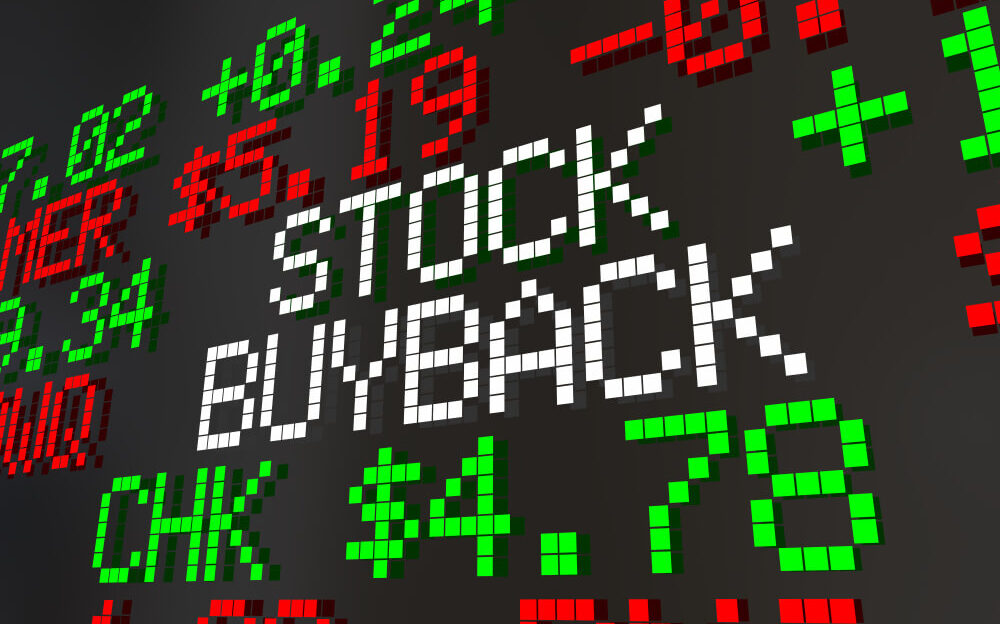The Inflation Reduction Act includes a provision that raised eyebrows on Wall Street.
Apart from a minimum corporate tax of 15% on companies earning more than $1 billion, the bill would implement a 1% tax on repurchased shares, aka stock buybacks.
It’s still early, and this bill isn’t a law just yet. It still has to pass the House of Representatives before President Biden signs it.
But if (or when) that happens, a stock buyback tax could be the biggest shake-up of how companies reward their investors since former President George W. Bush’s 2003 tax reforms.
If you remember, that law lowered the tax on dividend income to be in line with the long-term capital gains rate. Before Bush inked that bill, dividends were taxed at your marginal tax rate like bond interest.
Dividends vs. Stock Buybacks
A company’s primary responsibility is to make money for its shareholders. Investing in expansion and growing the business are the first ways to achieve that.
But profitable companies have excess funds after expansion needs are met. The two most common ways to return that capital to investors are dividends and share repurchases. The latter has been popular in recent decades for three primary reasons.
- Share repurchases goose earnings per share, which boosts share prices in most cases. If you’re running the company and your compensation is tied to an ever-increasing share price, you are incentivized to do this. Few CEOs get bonuses based on dividend growth.
- Unlike dividends, which are constant and require a certain amount of cash each quarter to maintain, share repurchases can be turned off or on as cash flow allows. If a company is flush with cash one quarter, it can speed up its repurchases. If money is tight, it can slow them down.
- Share repurchases — at least until now — are tax-free, or at least tax-deferred, in that the shareholders have no immediate tax impact. They will owe more in capital gains down the road, but that could be years in the future. Dividends, in contrast, are taxable in the year they are paid.
A New Golden Age in Dividend Stocks?
The mid-2000s were a golden age for dividend stocks.
We witnessed a historic rotation: Investors dumped non-dividend-paying growth stocks and bought into dividend-paying income stocks.
Even some of the growth stocks of the era scrambled to pay or raise dividends to stay relevant. The mighty Microsoft Corp. (Nasdaq: MSFT) succumbed to investor pressure and paid its first dividend in 2003. That would have been unthinkable a few years earlier.
So what changed … and why does it matter to us today?
It comes down to two things.
Why a Stock Buyback Tax Would Help Dividends
The tax code change in 2003 reduced the tax inefficiency of dividends in a huge way. Yes, double taxation still persisted: Corporate profits were taxed at the company level and then again as dividends. At least the rate was lower than before.
But the tech bust of 2000 to 2002 also played a big role here. Buybacks were great in the 1990s because stocks only went higher. When that reversed in the 2000s, share buybacks made a lot less sense. Repurchasing shares meant buying a depreciating asset that destroyed capital.
Flash-forward to today.
The proposed tax on repurchases isn’t huge at 1%. But at the margin, that will encourage less buybacks, and it makes dividends more competitive.
The bear market of 2022, like the bear market of the early 2000s, also hit tech stocks — the companies responsible for the largest chunk of the buybacks — hard. I can imagine investors souring on repurchase plans after seeing the value of those buybacks evaporate in the bear market.
Bottom line: Does this mean we’re on the verge of another golden age in dividend stocks?
I like the chances. It’s still early, but don’t be surprised if some of today’s biggest growth names follow Microsoft’s example from 19 years ago and initiate new dividends.
In Green Zone Fortunes, we follow the money. We’re willing to explore any corner of the market that meets our strict investment criteria. And our upcoming high-conviction stock recommendation includes a solid dividend payout.
To see how you can join our premium stock research service before we reveal that ticker next week, click here.
To safe profits,
Charles Sizemore, Co-Editor, Green Zone Fortunes
Charles Sizemore is the co-editor of Green Zone Fortunes and specializes in income and retirement topics. He is also a frequent guest on CNBC, Bloomberg and Fox Business.
